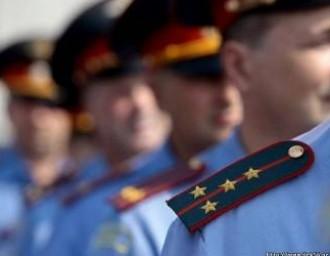Elena Tonkacheva: Law enforcement officials of EU and Belarus differ in their goals

Cooperation between law enforcement agencies of EU and Belarus should be implemented with the close adherence and respect towards human rights.
This opinion shared to the EuroBelarus Information Service the head of the Legal Transformation Centre “Lawtrend” Elena Tonkacheva.
Let us recall that at the end of December 2012 European Committee has adopted new program of police cooperation between countries members of the European Union and those in the Eastern Partnership. This program will promote cooperation of the law enforcement agencies in the questions of prevention of transboundary crime between EU and countries in the EaP. Being a member of the EaP, Belarus can participate in the given program and submit proposals for different projects. The total budget of the four-year program makes up €5 million.
According to Stefan Füle, the European Union's commissioner for enlargement and European Neighbourhood Policy, cooperation in the police services can enhance law and order in the countries which are EU Eastern neighbours.
- This cooperation is necessary and should be implemented; and it is important for Belarus not to be isolated, - assumes Elena Tonkacheva. – The question lies in what specific areas of coordinated action will become the subject of the program. And also to what level Belarusan law enforcement officers will be involved in this cooperation while we still have political imprisoners in our country and while serious violations of human rights, particularly on the question of freedom of assembly, freedoms of prisoners in the penal system and others are registered. These questions, I believe, should be the subject of serious discussion between EU and Belarusan law enforcement agencies against other areas of cooperation.
The program provides for education, meetings and skill sharing, which will raise the standard of knowledge and skills of the law enforcement officials of the EaP countries on the questions of police management and prevention of transboundary crime.
Prevention of transboundary crime is an all-European interest, which cannot but be shared by Belarus as a EU buffer state. From this point of view cooperation is necessary, and it should be strengthened, the head of the Lawtrend is sure.
Elena Tonkacheva is also sure that with such cooperation and exchange of skills and competences the dialog between the EU and Belarusan law enforcement agencies should be carried out through the lenses of the close adherence and respect towards human rights and freedoms.
- On the one hand, as a member of the Eastern Partnership, Belarus has a proposal which can’t be rejected, as it enforces our positions, in case we do not separate our interests from those of our neighbours. But on the other hand, there are obvious problems connected with the different understanding of what are these competences for and in which cases they should be implemented. It is there where European and Belarusan law enforcement agencies have difference in goals and objectives. And it is with these goals that the work on the cooperation between law enforcement agencies of the EU and Belarus should be done, furthering standards of deference and close adherence towards human rights and freedoms, - noted Elena Tonkacheva.
-
03.01
-
07.10
-
22.09
-
17.08
-
12.08
-
30.09



























